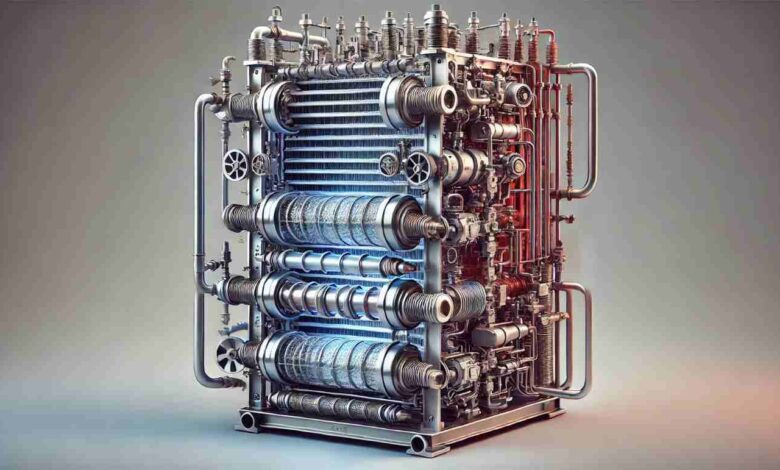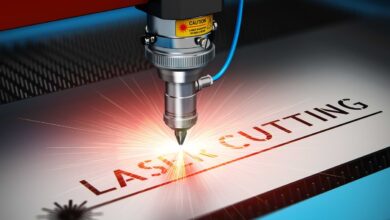What Does a Condenser Do? And Why Is It Needed?

When you think of your air conditioning system, the first image that might come to mind is that of the large outdoor unit sitting beside your house. This unit is known as the condenser, and it plays a crucial role in keeping your indoor environment cool and comfortable, especially during the sweltering summer months. But what exactly does a condenser do, and why is it needed? Let’s dive into the workings of this vital component of your air conditioning system.
Understanding the Role of the Condenser
The most important part of the air conditioning system which is responsible for converting refrigerant gas to its liquid state. This change is necessary for cooling. This is where the refrigerant actually begins its journey, if you will.
Heat from your indoor air gets absorbed by the refrigerant inside your home. When it is heated, the refrigerant gas moves to the condenser which is outside. This heat laden gas flows to the condenser side where it must release that abundant heat which is has absorbed from inside.
The compressor, which is basically a pump where the magic takes place, then sends that hot gas into the condenser coils. Most are made from either copper or aluminum and are basic coil designs that try to ease the movement of heat as well as they can.
How the Condenser Works
A fan forces air across these coils to remove heat from the refrigerant as it flows through the condenser. This refrigerant now turns into a gas that absorbs the heat from the cool air entering the unit, making it cold again and turning to a more liquid state.
The Heat Looses-This is a process of condensation. ITYM By the time the refrigerant leaves the condenser, it’s a cold, high-pressure liquid that will return to the house and evaporate again in the air handler with more heat with which to start its cycle all over again.
Why Is a Condenser Necessary?
The condenser is indispensable for several reasons:
Work to Dispel Heat: It clears out heat from your house efficiently. This cooling process essentially involves the continual absorption and discharge of heat, which would be ineffectual devoid of the condenser.
Air Conditioning Energy Efficiency: When your condenser is working well, the energy efficiency of your air condition system enhances. An efficient condenser will use less energy to do its job cooling your home. And by being energy efficient, these powerhouse dryers keep electricity bills low.
Congeniality Maintenance: The condenser is instrumental in keeping indoor temperatures even, which means it helps you stay comfortable. This will allow you to keep your home cooler in the hot weather, and people who depend on central ac can even become ill from too much heat.
It Extends the Life of Your System: Like regular visits to your doctor and dentist, keeping up with maintenance on your HVAC systems helps you get more useful life out of them. When the condenser is clean and properly taken care of, it can run more efficiently causing less stress on the unit.
Components of a Condenser
To understand how a condenser works, it’s essential to know its main components:
1. Compressor
The compressor is the actuality of the condenser; since gas low-duct-pressure lines and equipment in hispanicprograms.? The sight glass is an integral part if ensuring the refrigerant flows properly through your system.
2. Condenser Coils
These coils are where the heat exchange takes place. They allow the hot refrigerant gas to release its heat to the outdoor air, enabling it to condense back into a liquid.
3. Fan
It blows air from the outside over the condenser coils. This airflow is necessary in order to circulate the heat from the refrigerant into the outside air, which allows you need to cool again.
4. Fins
The metal fins are found on many condenser coils and serve to increase the surface area for heat exchange. This design enables more efficient heat transfer, which in turns helps the condenser to cool down the refrigerant more efficiently.
Common Issues with Condensers
Like any mechanical system, condensers can face problems that hinder their performance. Here are some common issues:
Dirty or Clogged Coils: If any condenser alleviation emerges on the coils, the cooling efficacy falls off drastically dust and debris amass on the coil, impeding airflow. This includes higher energy bills and less efficient cooling.
Refrigerant Leaks: On their own, leaks in the refrigerant lines cause diminished cooling efficiency. Icing can also result from low refrigerant levels and cause the system to labor more, leading to faster wear.
Fan Failure: If the fan does not work correctly, it may fail to cool the refrigerant in the condenser properly, and airflow becomes limited.
Maintenance Tips for Your Condenser
To ensure your condenser operates efficiently, regular maintenance is crucial. Here are some tips:
Cleaning regularly: Your condenser unit should be surrounded by an unobstructed area. Keep coils and fins clean for best airflow and heat exchange.
Examine Leaks: Every so often take a moment for examining leakages of refrigerant or even far more difficulties. If at any time you notice weird sounds or drops in how well the system operates, it might be best to call a professional.
Professional Inspections: Allow a certified HVAC technician to inspect your system regularly. They can detect early issues and monitoring systems run effectively.
The Bottom Line
This is a core aspect of your aircon unit, as it cools down the refrigerant and guarantees good heat exchange. If it is functioning properly, then it will allow air to flow efficiently through your HVAC, allowing it to operate at peak performance and ensuring that the interior space where you live or work remains comfortable while also saving you money on your energy costs. Caring for your condenser helps you stay cool in summer and reduces costs.
The next time you absorb how gloriously frictionless the cold air from your AC flows into the room, remember that the face behind all this labor is an uncelebrated hero of Herculean might.





